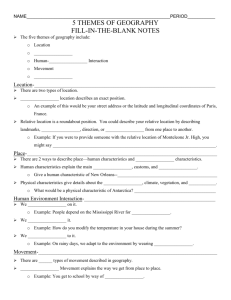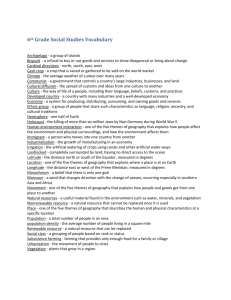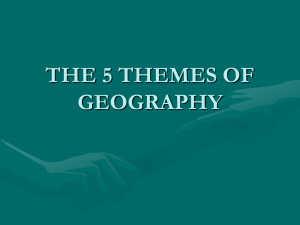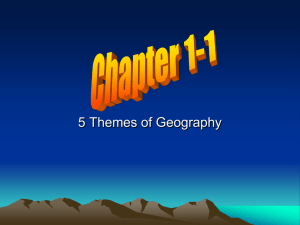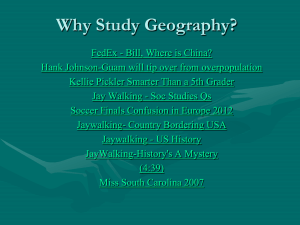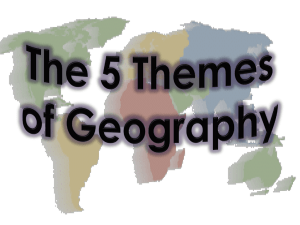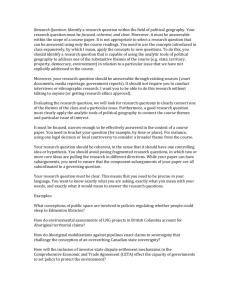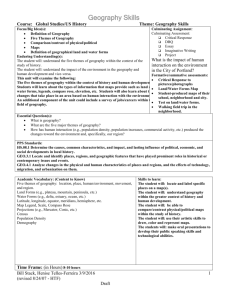Urban Geography (track in Human Geography) detailed description
advertisement
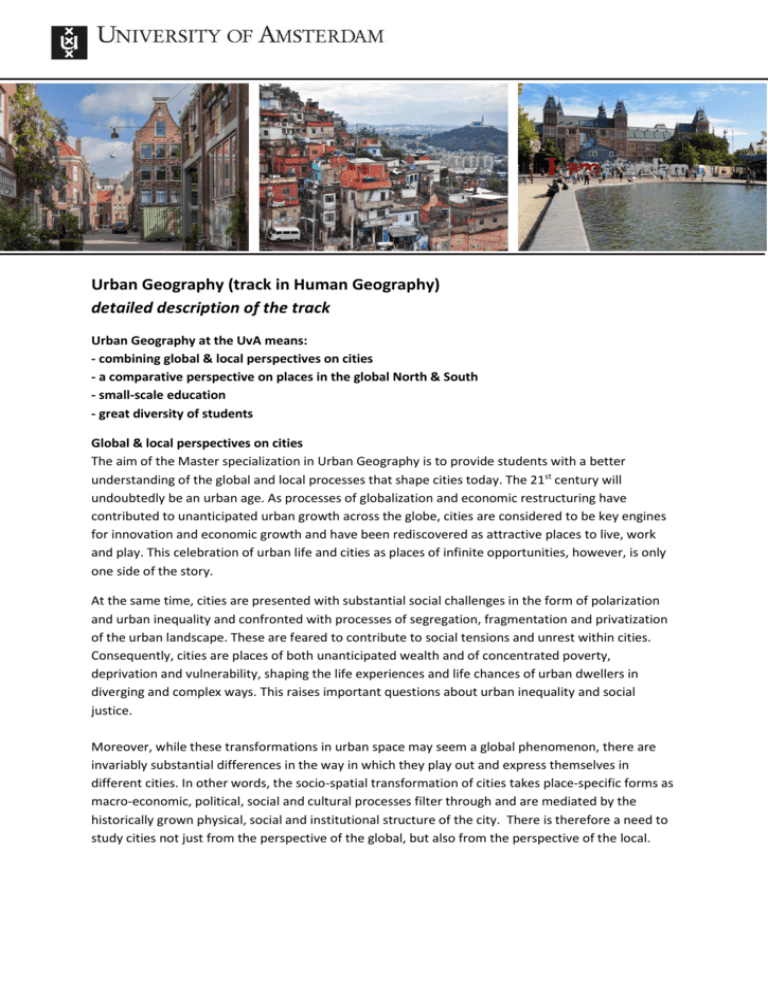
Urban Geography (track in Human Geography) detailed description of the track Urban Geography at the UvA means: - combining global & local perspectives on cities - a comparative perspective on places in the global North & South - small-scale education - great diversity of students Global & local perspectives on cities The aim of the Master specialization in Urban Geography is to provide students with a better understanding of the global and local processes that shape cities today. The 21st century will undoubtedly be an urban age. As processes of globalization and economic restructuring have contributed to unanticipated urban growth across the globe, cities are considered to be key engines for innovation and economic growth and have been rediscovered as attractive places to live, work and play. This celebration of urban life and cities as places of infinite opportunities, however, is only one side of the story. At the same time, cities are presented with substantial social challenges in the form of polarization and urban inequality and confronted with processes of segregation, fragmentation and privatization of the urban landscape. These are feared to contribute to social tensions and unrest within cities. Consequently, cities are places of both unanticipated wealth and of concentrated poverty, deprivation and vulnerability, shaping the life experiences and life chances of urban dwellers in diverging and complex ways. This raises important questions about urban inequality and social justice. Moreover, while these transformations in urban space may seem a global phenomenon, there are invariably substantial differences in the way in which they play out and express themselves in different cities. In other words, the socio-spatial transformation of cities takes place-specific forms as macro-economic, political, social and cultural processes filter through and are mediated by the historically grown physical, social and institutional structure of the city. There is therefore a need to study cities not just from the perspective of the global, but also from the perspective of the local. Central themes In the ‘urban geography’ track, students will explore a number of interrelated themes: 1. Urban inequalities and social justice: focusing on various forms of spatial segregation, unequal access to housing and public space and the way in which these inequalities are shaped by the institutional context and how they may differ along dimensions of class, ethnicity, gender and age. 2. Socio-spatial dynamics of the city: providing insight in processes of urbanization and suburbanization, neighborhood change, gentrification and urban restructuring. 3. Everyday urban geographies: questioning how residents’ everyday lives are shaped by the structure of city and the neighborhoods in which they live. At the same time, residents themselves use and ‘consume’ places in the city – ranging from neighborhoods to parks, playgrounds and sidewalks - and thereby also produce these places. These themes are explored in cities around the world, highlighting similarities and differences in the transformation of urban spaces and places. Studying in Amsterdam Studying Urban Geography at the UvA means studying in the vibrant city of Amsterdam, which provides students with many opportunities to see, experience and explore urban geographical themes and processes themes ‘on the ground’. Moreover, the Graduate School of Social Sciences offers the highest ranked Human Geography Master program in continental Europe and, like the city itself, forms a vibrant international academic community, where roughly a third of the students is non-Dutch. Academic staff Dr Hebe Verrest, Dr Fenne Pinkster, Dr. ir. Lia Karsten, Professor Jan Nijman and Professor Sako Musterd
